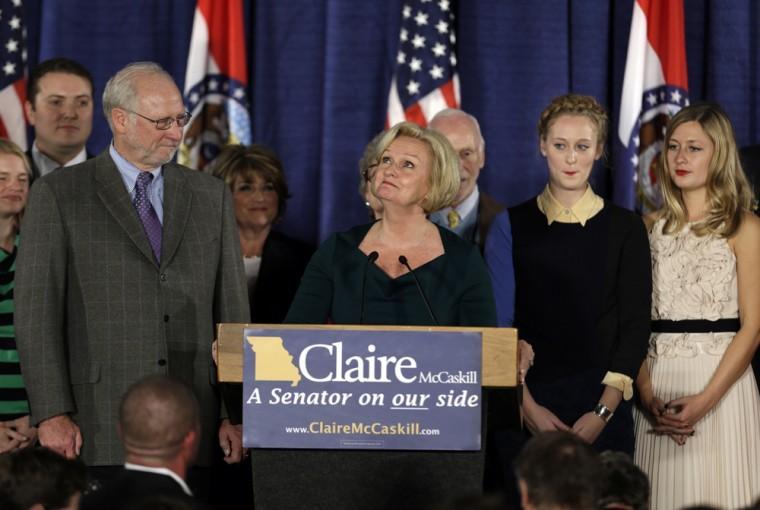Although 1992 — the same year that the first women were elected into the Senate — is remembered as the “Year of the Woman,” many will agree that 2012 shared a similar tune.
The results of the presidential election showed that 55 percent of women voted for President Barack Obama, which significantly contributed to the president’s win, according to CNN exit polls.
While men continue to hold the majority of Senate seats, 20 women are now seated in the chamber following the election.
Although women comprise 51 percent of the population in the U.S., they continue to be vastly underrepresented in the legislature.
In January, Debbie Walsh, director of the Center for American Women and Politics, said women held only 17 percent of congressional seats, 12 percent of governorships and 17 percent of big-city mayorships.
But on the bright side, those percentages have slightly increased this election run with the success of a few female candidates.
Some recent female victories include Mass. Democrat Elizabeth Warren over incumbent Scott Brown and Missouri Democrat Claire McCaskill over the infamous U.S. Rep. Todd Akin.
Akin’s loss was a win for women across the country. His comments on “legitimate rape” portrayed his ignorance and thoughtlessness on a serious issue.
I’m uncertain of the legitimacy of the “War on Women,” which is described as the legislative and rhetorical attacks on women’s rights. But we can only hope an equal representation of women in politics would likely squash any further claims of such a war.
The push to promote more female involvement in politics has even entered into the local spheres of government.
Earlier this year, District 15 Sen. Sharon Weston Broome encouraged women to find their place in politics in an online seminar called “Don’t Get Mad, Get Elected.”
Like Broome, many women are frustrated with unsolved issues in their community — whether they’re crime or education — and along with former Missouri state legislator Emmy McClelland, Broome told the group of women that personally representing their community is the best way to bring about the change they seek.
“It is important that women have a voice at the table when important decisions are made about our state’s and our nation’s future,” Broome said during the seminar. “It is important that women realize they can run for elected office, win and make a difference. This is particularly important in state legislatures with term limits where more and more seats are up for grabs.”
Ladies, don’t bother sending emails and writing letters to unresponsive politicians. I can’t begin to describe the frustration I feel when I receive a pre-written mass letter from the office of that simply thanks me for sending my letter.
Some will say that’s the game of politics. But I’m convinced more can be done, and equal representation of women in politics is the answer.
Walsh agrees.
“Women are able to work together across party lines,” she said. “Women usually run when there is a problem that needs to be solved. Men run to be someone; women run to do something.”
Walsh, who followed women’s participation in politics for more than 40 years, said progress continues to be slow.
While a few women with big names, such as Secretary of State Hillary Clinton and House Minority Leader Nancy Pelosi, have made headway in politics, equal representation for women remains to be only a hope for the future — hopefully a future in our lifetime.










